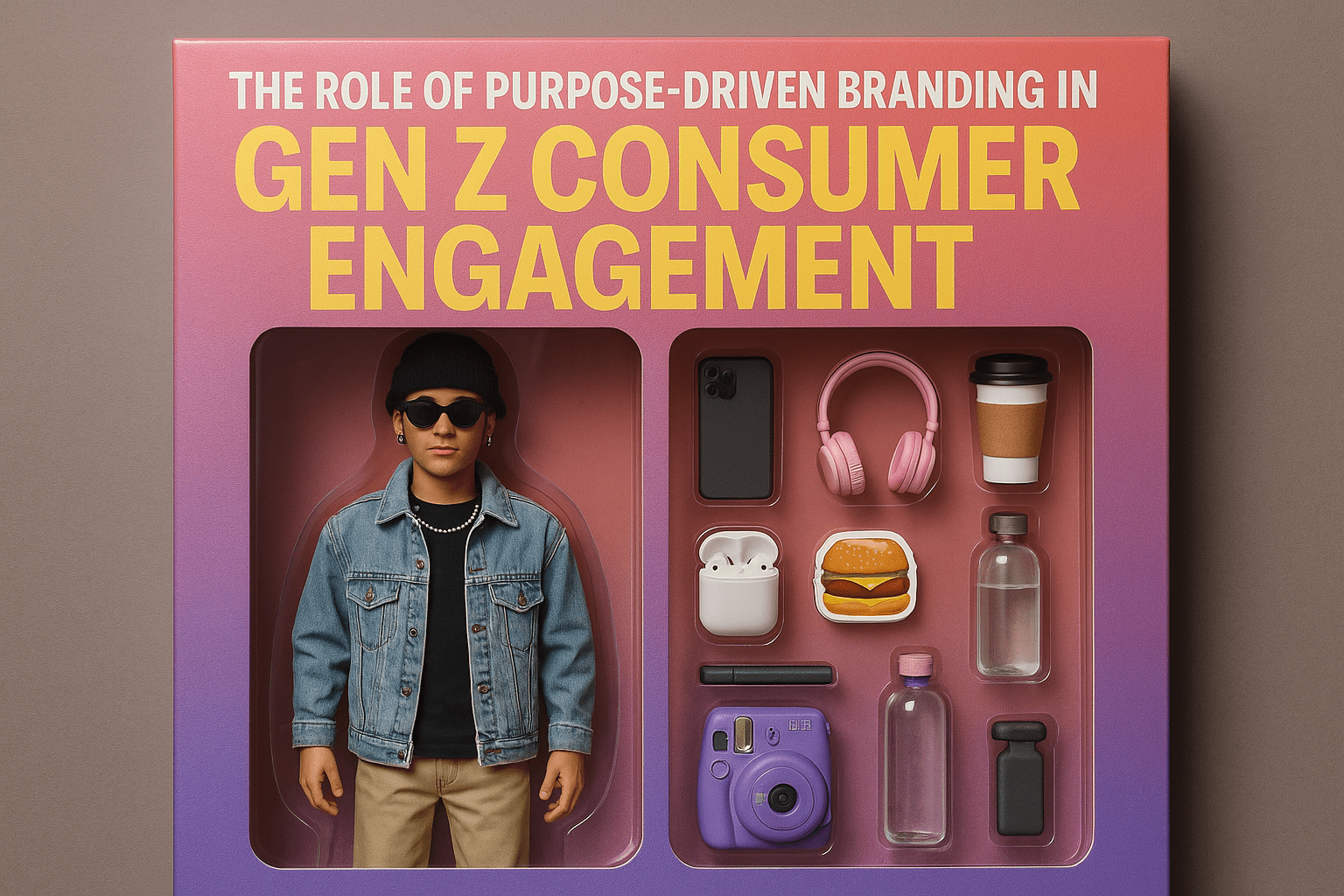
In an age where content is consumed at lightning speed and brand loyalty is fleeting, one truth is becoming increasingly clear: Gen Z doesn’t just buy products — they buy into purpose.
Born between the mid-1990s and early 2010s, Gen Z is the first generation of true digital natives. With access to an unprecedented amount of information, this demographic is deeply aware of global issues and expects brands to reflect values that align with their own. For marketers and brands alike, this shift presents both a challenge and an opportunity: the need to adopt purpose-driven branding as a cornerstone of consumer engagement strategies.
Why Purpose Matters to Gen Z
Unlike previous generations, Gen Z is less swayed by flashy advertisements or empty slogans. Instead, they are looking for authenticity. According to a 2023 study by McKinsey & Company, 70% of Gen Z consumers say they are more likely to support brands they believe are making a positive impact in the world.
Purpose-driven branding isn’t just about CSR initiatives or sustainability checkboxes. It’s about embedding meaning into the brand’s DNA — from the product design and sourcing to messaging and partnerships. This generation scrutinizes a brand’s values and actions, rewarding those that show real commitment to social, environmental, and cultural issues.
From Transactional to Relational: A Shift in Engagement
Traditional marketing focused on pushing products. Today, purpose-driven branding allows brands to build meaningful, long-term relationships with Gen Z by sparking two-way dialogue and shared identity. This is where consumer engagement transforms from passive interaction into active participation.
Take Patagonia, for example. Their commitment to environmental activism is more than a marketing angle — it’s a business model. Gen Z recognizes that. Whether it’s participating in repair initiatives, supporting petitions, or sharing branded content that supports a cause, consumers are engaging with the brand on a deeper level. And deeper engagement often translates to stronger brand loyalty.
The Impact on Content and Creative Strategy
Purpose-driven branding also influences how content is created and distributed. For Gen Z, storytelling is key — but it must be grounded in truth. Highly produced ads that feel disconnected from real-world issues won’t resonate. Instead, brands are turning to user-generated content, behind-the-scenes storytelling, and influencer collaborations that reflect lived experiences.
This also challenges creative production teams to think differently. Authenticity needs to be baked into everything — from casting and scripting to design and distribution. Diversity, inclusivity, and relevance aren’t just checkboxes; they’re non-negotiables. And when purpose aligns with execution, consumer engagement becomes much more impactful and sustained.
Transparency and Accountability: The New Brand Equity
Another pillar of purpose-driven branding is transparency. Gen Z has mastered the art of internet sleuthing — if your values are only surface-deep, they’ll find out. Brands must be willing to admit missteps, share progress, and invite dialogue. It’s not about being perfect; it’s about being real.
This level of openness enhances consumer engagement by fostering trust. When Gen Z sees a brand that listens and evolves based on feedback, they’re more likely to stick around. Transparency, then, becomes a powerful brand differentiator in a crowded digital landscape.
Leveraging Purpose for Long-Term Growth
While some brands still view purpose-driven branding as a marketing trend, the data suggests otherwise. Purpose has proven to be a driver of long-term profitability. A 2022 Deloitte report found that purpose-oriented companies experienced 30% higher innovation and 40% greater retention rates. When embedded into the core business strategy, purpose becomes a growth engine — especially when it’s directly tied to consumer engagement efforts.
The key lies in alignment. Purpose needs to resonate internally as much as externally. Employees become brand ambassadors, customers become advocates, and communities become collaborators. This ecosystem of shared purpose becomes a self-sustaining loop that drives both relevance and revenue.
The Bottom Line: Brand Strategy Meets Human Connection
Gen Z is reshaping the way brands think about value — moving beyond products and prices toward connection and conviction. Consumer engagement in this context is no longer just a metric; it’s a reflection of trust, shared belief, and cultural alignment.
As a digital production company rooted in both Brand Strategy and Creative Production, we at Corex Creative believe that purpose isn’t just good for branding — it’s essential for building brands that matter. We partner with forward-thinking companies who want to move beyond the noise and make something meaningful. Because in today’s landscape, brands that lead with purpose don’t just engage — they inspire.


